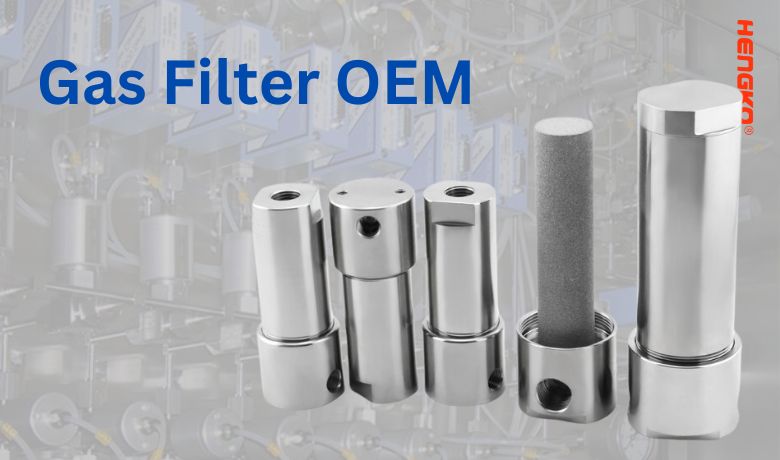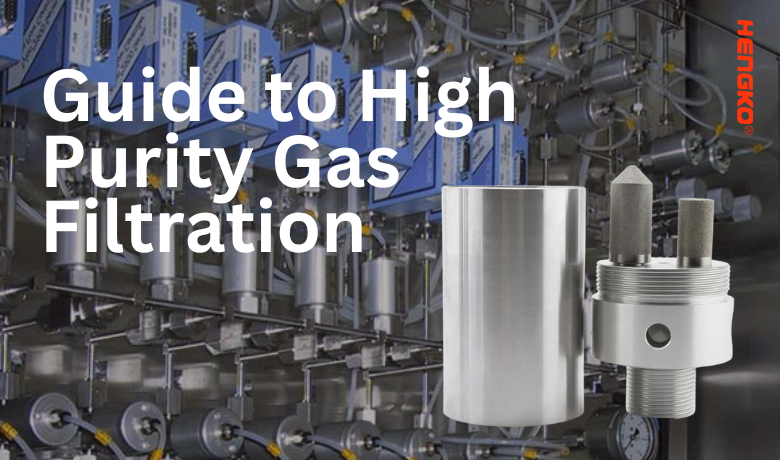-

FRL Air Pressure Regulator Complete Filter Regulator Lubricator Assembly
Features of Stainless Steel Air Preparation Unit Durable Construction 1.Corrosion Resistance: Made from high-quality stainless steel to withstand har...
View Detail -

Precision Inline Gas Filter for Instrumentation Systems Swagelok Replacement
Features of Stainless Steel GAS / Liquid Inline Filters *All-welded straight-through construction ensures no leakage and safe liquid containment. *Co...
View Detail -

Porous Sintered Stainless Steel Inline Filter for Gas and Liquid Applications Swagelok ...
Features of Stainless Steel GAS / Liquid Inline Filters *All-welded straight-through construction ensures no leakage and safe liquid containment. *Co...
View Detail -

OEM Inline Filter Solution for Gas and Liquid Filtration
Features of Stainless Steel GAS / Liquid Inline Filters *All-welded straight-through construction ensures no leakage and safe liquid containment. *Co...
View Detail -
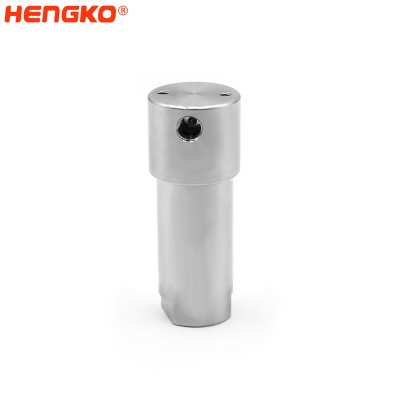
CEMS Flue Gas Online Monitoring with Microporous Sintered Filter
Flue gas monitoring stainless steel microporous sintered filter element Sintered filter element filter tube for cems flue gas online monitoring and purificat...
View Detail -
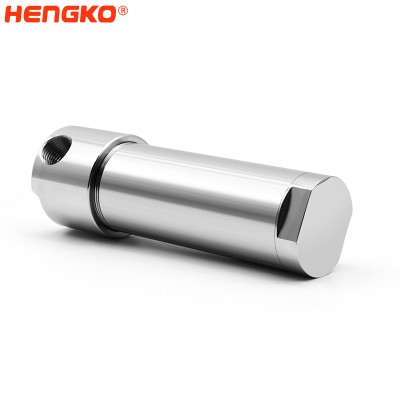
HENGKO® High Pressure 316 In-line High Purity Filter, 1450 PSIG
HIGH PRESSURE. ULTIMATE PERFORMANCE. Pressure 7000 psig / 50MpaOperating Temps 0-300 °C Port Size ¼" to 2" NPT The high pressure filters are used to remove s...
View Detail -
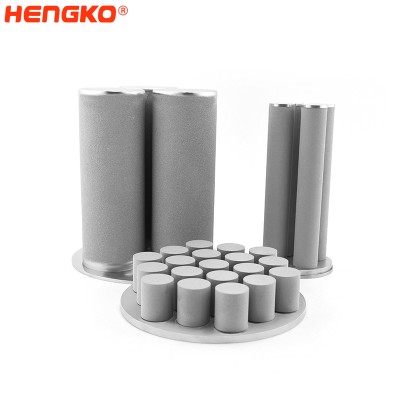
Gas Purifiers Manufacturer Purity Gas Filters For High Temperature & Pressure
Gas Purifiers Manufacturer Purity Gas Filters For High Temperature & Pressure High-precision, high-flow, all-metal filtration engineered specifically f...
View Detail -
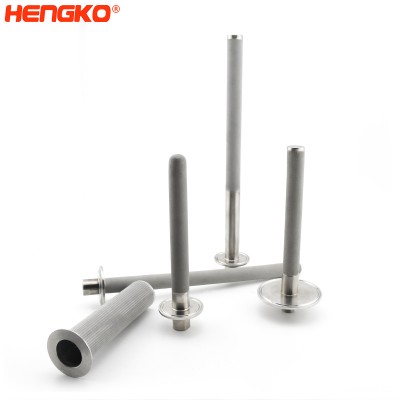
In-Line Gasket Filters for the filtration of gases
Gasket Filter for the filtration of gases For protecting regulators and MFCs, protects critical components from particle damage In-Line Design Easy Installat...
View Detail -
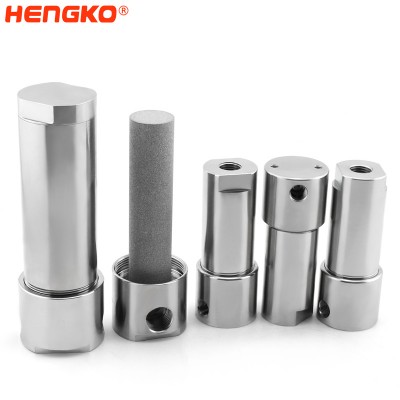
High Pressure Inline Gas Filter, > 80 Bar High Pressure Filter
High Pressure Inline Filter, > 80 Bar High Pressure Filter High-purity high-pressure filters are used in fluid systems to protect sensitive components from ...
View Detail -
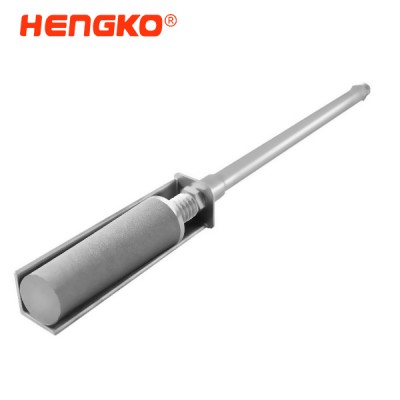
Gas sampling probe Pre-Filter
Gas sampling probe Pre-Filter Dust separation in the process For dust concentrations up to 3g/m3 Large active surface Long lifetime Low differential pressu...
View Detail -
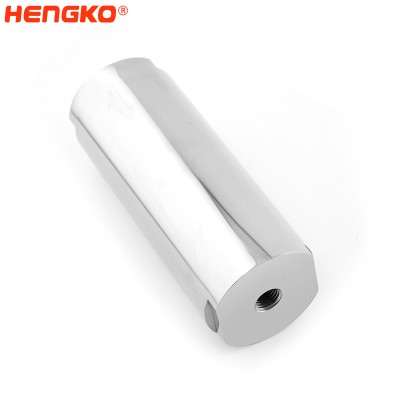
HENGKO® High Purity Semiconductor Gas Filter
High purity series filters are designed to filter semiconductor gases. This fully welded assembly will deliver 0.003 micron particle assisted retention. Semi...
View Detail -
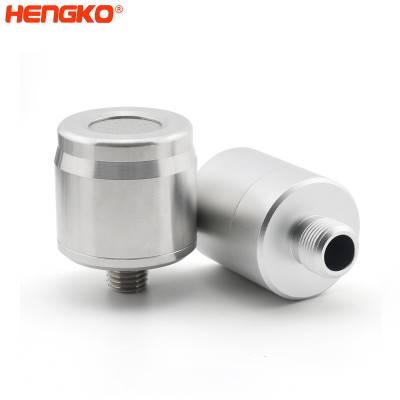
Industrial explosion-proof gas sensor housing
HENGKO introduces a new range of stainless steel flameproof enclosures housing gas sensors, dedicated to fixed gas detectors in industrial applications. G...
View Detail -
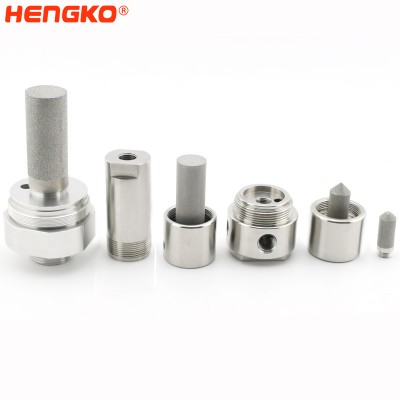
In-line Gas Filter Sintered Filter for Back Pressure Regulators
Regulators are susceptible to damage from system particles. So pressure-reducing regulators are supplied with a 20-100 µm press 316 SS replaceable sintered f...
View Detail -
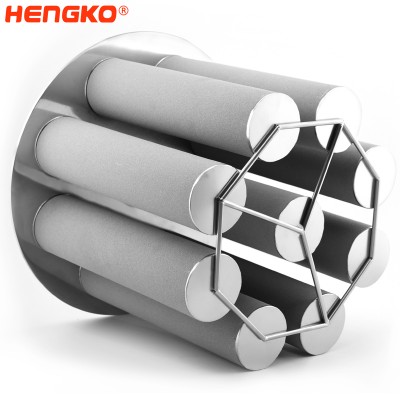
High Purity Gas Purifiers Sintered Filter for Single Low Flow Rate Applications
Gas Purifiers Sintered Filter for Single, Low Flow Rate Applications Designed for high purity and ultra high purity applications that require impurity levels...
View Detail -
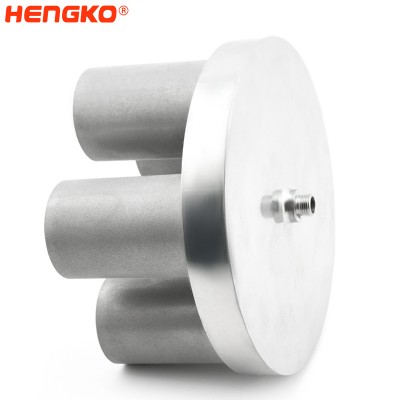
Porous Metal Filter Media and OEM Sintered Stainless Steel Filter for Hydrogen Gas
The porous metal filter media of the present invention includes a filtering unit which removes impurities from hydrogen gas, and a one-way control valve whi...
View Detail -
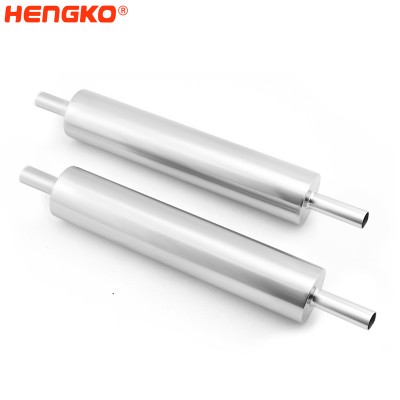
Sintered In-line Metal Gas Filter for Semiconductor Gas Purification System
Sintered in-line metal gas filters work to expel impurities including moisture, oxygen, carbon dioxide, carbon monoxide, hydrocarbons and metal carbonyls by ...
View Detail -
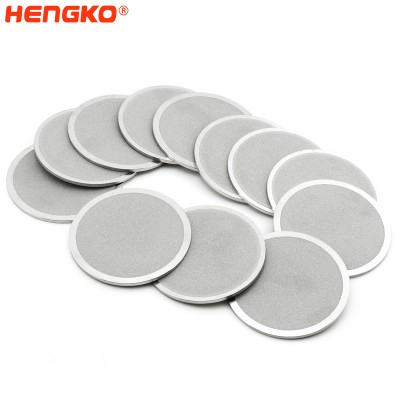
Sintered porous metal filter disc 20 micron for Gas purification and analysis
Achieve Unparalleled Gas/Solids Separation with HENGKO's Sintered Stainless Steel Filter Discs! Our filtration systems, featuring sintered stainless ...
View Detail -
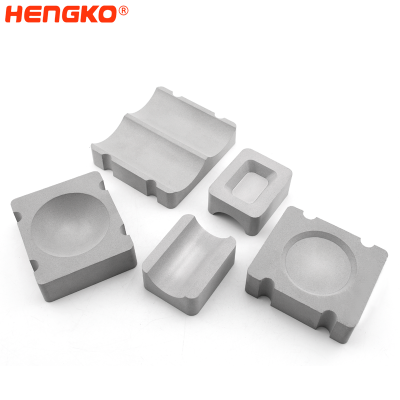
Sintered metal Gas / Solids Venturi Blowback (GSV) GSP filter OEM Services
Custom Sintered metal Gas/Solids Venturi Blowback (GSV) GSP filter Sintered metal filters have been used for hot gas filtration in various plants in the che...
View Detail -
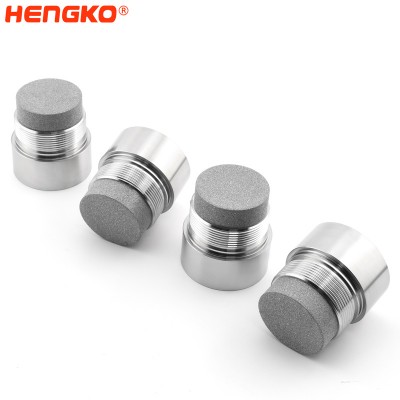
Industry gas sensor housing for flameproof fixed, gas sensor
Stainless Steel Explosion-proof filter is mainly used in aviation maintenance enterprises, used to filter gasoline, kerosene, oil, and hydraulic oil. It is a...
View Detail -
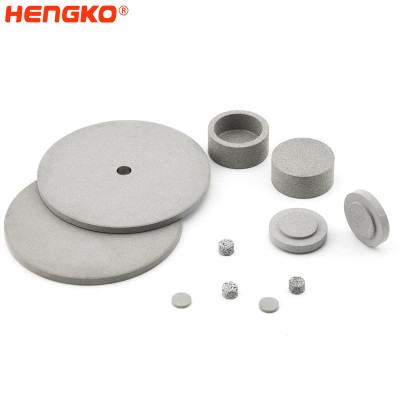
Stainless Steel Porous Metal Sheets SS316 Filter for Hydrogen Gas Diffusion
Stainless Steel Porous Metal Sheets SS316 Filter for Hydrogen Gas Diffusion Unlock the Versatility of Sintered Metal Elements with HENGKO! Our sintered meta...
View Detail
Why some gas need to filter and Purity ?
Several reasons exist for why some gases need filtration and high purity:
* Maintaining process integrity:
In applications like semiconductor manufacturing or medical procedures,
even microscopic particles or impurities can disrupt or contaminate the process,
leading to product defects or safety hazards.
* Protecting equipment:
Sensitive equipment can be damaged by even trace amounts of contaminants,
leading to costly repairs and downtime.
* Ensuring consistent results:
Precise control over gas composition is crucial for many scientific and industrial processes.
Filtration helps maintain consistent gas quality and achieve repeatable results.
* Meeting regulatory requirements:
Certain industries, like food and beverage or pharmaceuticals, have strict regulations regarding
the purity of gases used in their processes.
Here are some specific examples:
* Inert gases like nitrogen and argon used in welding or food preservation require filtration to remove
moisture and oxygen, which can compromise the weld quality or promote spoilage.
* Process gases used in semiconductor manufacturing, such as ammonia or hydrogen chloride, need
extremely high purity levels to prevent defects in the microscopic circuits being created.
* Medical gases like oxygen or nitrous oxide used in hospitals must be free of contaminants to
ensure patient safety.
While some commercially available gases may be labeled as "high purity," they might still contain trace
impurities or pick up contaminants during storage and transportation. Filtration provides an extra layer of
protection to ensure the gas meets the specific requirements of the intended application.
Main Features of Gas Filters
Filtration Performance:
* High filtration efficiency: Sintered stainless steel filters offer excellent removal of particles down to
submicron levels, depending on the filter's pore size. This ensures high gas purity and protects
sensitive equipment and processes.
* Wide range of pore sizes:
Filters can be manufactured with various pore sizes, allowing them to be customized for specific
filtration needs, from removing large dust particles to capturing microscopic contaminants.
* Depth filtration:
The porous structure of the sintered metal allows for depth filtration, where particles are trapped
throughout the filter media, not just on the surface. This extends the filter's lifespan and ensures
consistent performance.
Material Properties:
* Corrosion resistance:
Stainless steel is highly resistant to corrosion from various gasses and fluids, making it suitable
for use in harsh environments.
* High temperature resistance:
Sintered stainless steel can withstand high temperatures, allowing them to be used in applications
involving hot gases.
* Cleanability:
The filters can be easily cleaned and reused, reducing replacement costs and downtime.
* Long lifespan:
Due to their robust construction and resistance to harsh conditions, sintered stainless steel filters
offer a long service life.
Additional Features:
* High mechanical strength:
The sintered metal structure provides excellent mechanical strength, allowing the filter to withstand
high pressure differentials.
* Biocompatibility:
Certain grades of stainless steel are biocompatible, making them suitable for applications involving
medical gases or food and beverage processing.
* Versatility:
Sintered stainless steel filters can be manufactured in various shapes and sizes to fit diverse application needs.
Overall, sintered stainless steel gas filters offer a unique combination of high filtration efficiency, robust material
properties, and long lifespan, making them a popular choice for various industrial and medical applications
requiring high gas purity.
How to choose right gas filter for your gas and purity project ?
Choosing the right gas filter for your project depends on a number of critical factors. Here's a step-by-step approach:
1. Define Your Needs:
* Gas type:
Identify the specific gas you will be filtering. Different gases have different chemical properties that might require specific filter materials.
* Contaminants:
Understand the types of contaminants in your gas stream (particles, moisture, oils, etc.). This determines the filter's micron rating.
* Purity level:
How pure does the gas need to be? The required purity level influences the filter's efficiency and design.
* Flow rate:
The volume of gas passing through the filter per unit of time impacts the filter size.
* Operating conditions:
Consider factors like temperature, pressure, and chemical compatibility.
2. Filter Specifications:
* Micron rating:
This value indicates the filter's ability to remove particles of a specific size.
Choose a micron rating that aligns with your purity requirements.
* Material:
Stainless steel is the most common material for durability and corrosion resistance.
Consider specific grades for special applications or biocompatibility requirements.
* Connection type and size:
Ensure the filter fits properly within your system's piping.
* Housing:
Select a housing material and design suitable for your operating conditions (pressure, temperature).
3. Additional Considerations:
* Pressure drop:
Determine the acceptable pressure drop across the filter.
Filters with finer filtration capabilities will often have a higher pressure drop.
* Replaceability:
Will you be using replaceable filter elements or a complete filter assembly?
* Cost:
Balance initial investment with ongoing maintenance and replacement costs.
4. Consult with Experts
* Filter manufacturers:
Reputable manufacturers like HENGKO (https://www.hengko.com/high-purity-gas-filter/)
specialize in gas filtration solutions and can advise on best practices for your specific application.
* Industry resources:
Look for sector-specific guidelines or regulations surrounding gas purity and filtration.
Tips:
* Oversizing:
Slightly oversizing your filter can provide better protection against unexpected surges or contamination.
* Monitoring:
Install pressure gauges before and after the filter to monitor pressure drop and determine
when the filter needs cleaning or replacement.
* Regular maintenance:
Follow the manufacturer's recommended maintenance schedule to extend the life of your filter.
Selecting the right gas filter ensures the protection of critical equipment, compliance with regulations,
and achievement of the highest levels of purity in your project.
FAQ
1. Why are gas filters and purity systems necessary?
Gas filters and purity systems play a crucial role in various applications by removing contaminants and
ensuring the desired level of gas purity. This is crucial for several reasons:
* Maintaining process integrity:
Impurities can disrupt or contaminate sensitive processes like semiconductor manufacturing or
medical procedures, leading to product defects or safety hazards.
* Protecting equipment:
Even trace amounts of contaminants can damage sensitive equipment, causing costly repairs and downtime.
* Ensuring consistent results:
Precise control over gas composition is essential for many scientific and industrial processes.
Gas filters help maintain consistent gas quality and achieve repeatable results.
* Meeting regulatory requirements:
Certain industries, like food and beverage or pharmaceuticals, have
strict regulations regarding the purity of gases used in their processes.
2. What types of contaminants can gas filters remove?
Gas filters can remove various types of contaminants, depending on the specific filter design and application.
Here are some common examples:
* Particulates:
These include dust, rust, and other airborne particles that can clog equipment and interfere with processes.
* Moisture:
Excess moisture can affect gas reactivity and cause corrosion in equipment.
* Hydrocarbons:
These organic compounds can contaminate processes and affect product quality.
* Acidic gases:
These can corrode equipment and pose safety hazards.
3. How are gas filters rated?
Gas filters are typically rated by their micron rating.
This number indicates the smallest size of particles that
the filter can capture effectively. For example, a 1-micron filter can remove
particles as small as 1 micrometer (µm) in diameter.
4. What are the different types of gas filter materials?
The most common material for gas filters is sintered stainless steel.
This material offers a combination of high filtration efficiency, corrosion resistance,
high temperature tolerance, and cleanability.
Other materials can be used for specific applications, such as:
* Ceramic:
Suitable for high-temperature and high-purity applications.
* Polymer:
Used for filtering specific gases or when lower cost is desired.
* Fiber media:
Used for pre-filtration applications to capture larger particles.
5. How do I choose the right gas filter for my application?
Choosing the right gas filter requires considering several factors, including:
* The type of gas being filtered:
Different gases have different chemical properties and require compatible filter materials.
* The desired level of gas purity:
Determine the level of filtration needed to meet your specific application requirements.
* The flow rate of the gas:
The filter size needs to be appropriate for the volume of gas being processed.
* Operating conditions:
Factors like temperature, pressure, and chemical compatibility with the filter material are crucial.
Consulting with a reputable gas filter manufacturer is recommended to ensure you select the most
suitable filter for your specific needs.
6. How often do I need to replace my gas filter?
The lifespan of a gas filter depends on several factors, including:
* The type and amount of contaminants being removed:
Filters handling heavy contamination loads will need more frequent replacement.
* The operating conditions:
High pressures, temperatures, or chemical exposure can shorten the filter life.
* The specific filter design:
Some filters offer longer lifespans due to their design and materials.
It's crucial to monitor the pressure drop across the filter regularly.
An increased pressure drop indicates a clogged filter and the need for replacement or cleaning (if applicable).
7. Can gas filters be cleaned and reused?
Some gas filters, particularly those made of sintered metal, can be cleaned and reused.
The cleaning method depends on the specific filter design and the type of contaminants being removed.
Always follow the manufacturer's instructions for cleaning and maintenance to ensure optimal performance and lifespan.
8. What are the safety considerations when using gas filters and purity systems?
Working with compressed gases and filters requires adhering to safety protocols. This includes:
* Using personal protective equipment (PPE):
Always wear appropriate eye protection, gloves, and respirators when handling gases and filters.
* Following proper handling procedures:
Familiarize yourself with safe handling practices for compressed gases and the specific filter system you are using.
* Maintaining the system regularly:
Regularly inspect your gas filters and purity system for leaks, damage, or malfunctioning components.
9. What are the environmental considerations of using gas filters?
While gas filters are essential for ensuring gas purity, it's important to consider their environmental impact. This includes:
* Proper disposal of spent filters:
Certain filter materials may require specific disposal methods to avoid environmental contamination.
* Minimizing energy consumption:
Choosing energy-efficient filter systems and optimizing operating conditions can reduce energy consumption.
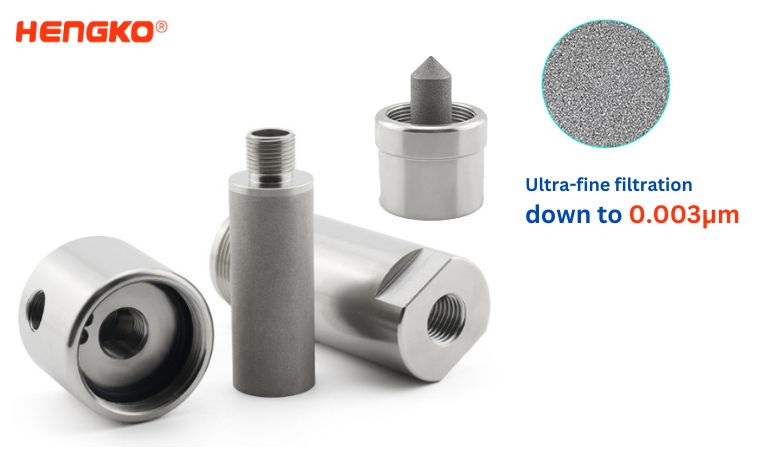
Looking for premium gas filtration and purification solutions?
Contact HENGKO today for expert OEM services tailored to your specific needs.
Whether it's high-pressure gas filtration, custom purification systems, or specialized component manufacturing,
HENGKO offers a one-stop solution. Don't hesitate, reach out to the HENGKO team now by email ka@hengko.com
